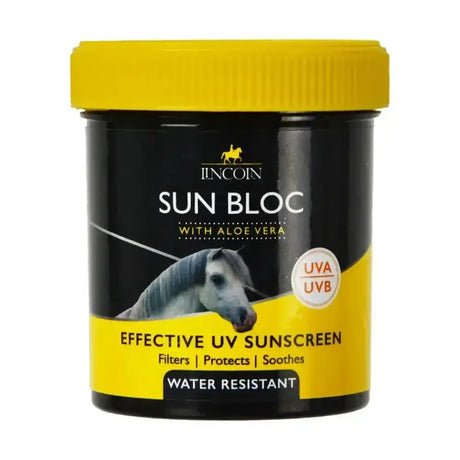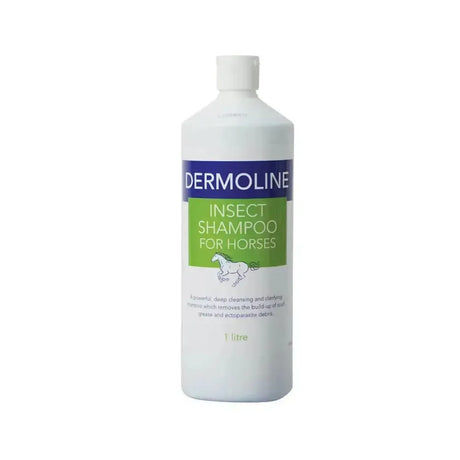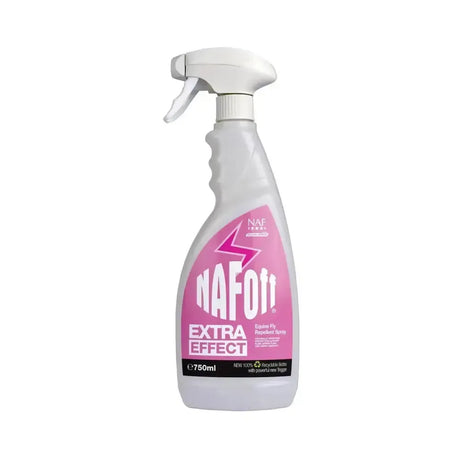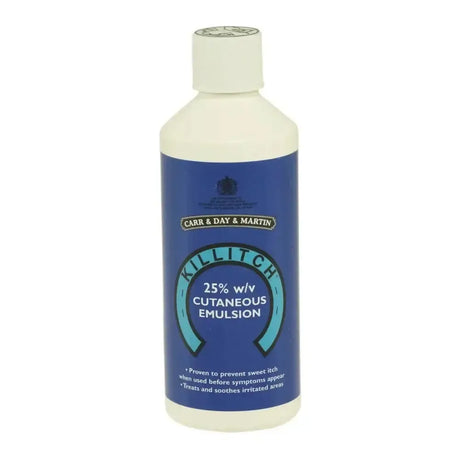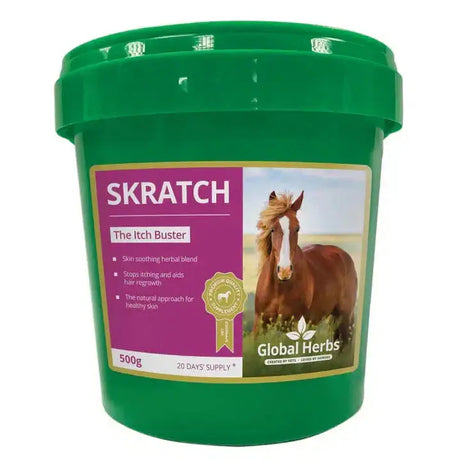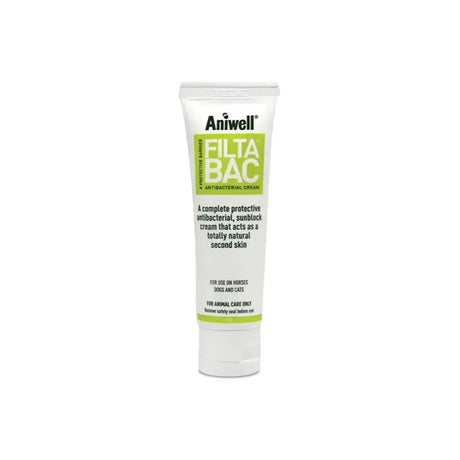Key Takeaways:
- Introduction
- Understanding Equine Stress
- Key Ingredients in ECalm Horse Calming Feed
- The Science Behind Calming Feeds
- How to Use ECalm Effectively
- Real-Life Experiences and Testimonials
- Alternative Approaches to Horse Calming
The Essential Role of Calmness in Horses
Understanding Equine Anxiety
Calmness in horses is not just a pleasant trait; it is essential for their overall well-being. Horses are naturally flight animals, and their instincts can lead to heightened states of anxiety in various environments. When a horse is anxious, it often manifests in several behavioral problems, such as nervousness, aggression, and inability to focus, which can impact their health and performance. Factors contributing to anxiety may include changes in environment, social dynamics, and even health issues that can disrupt their calm state.
Common Behavioral Issues Linked to Stress
Many horse owners have encountered behavioral issues that stem from anxiety. Bucking, rearing, and excessive whinnying are just a few signs that a horse is struggling to maintain composure. Moreover, heightened stress levels can compromise the horse's digestive health, making it imperative to address these concerns promptly. Chronic stress can lead to severe conditions such as ulcers or colic, emphasizing the urgent need for effective calming solutions.
The Importance of Effective Solutions
Addressing equine anxiety should be a priority for every horse owner. With the prevalence of behavioral issues, finding a safe and effective means of promoting calmness is crucial. This is where ECalm horse calming feed comes into play, offering a natural solution to help horses relax without compromising their health or performance. The unique formulation of ECalm works to soothe the nervous system, allowing horses to manage stress better and settle into a more tranquil state.
By utilizing products specifically designed for equine anxiety, such as ECalm, you are not only enhancing your horse's overall quality of life but also paving the way for improved training outcomes and deeper connections between horse and rider. Investing in calmness leads to happier, healthier horses that are equipped to thrive in their environment.
Understanding Equine Stress
As we dive deeper into the world of equine well-being, it's essential to grasp the intricacies of what contributes to stress in horses. Whether it's the bustle of a competition or the routine of daily care, several factors can influence a horse's emotional and physical health. Understanding these stressors is the first step towards creating a more serene environment for our equine companions.
Environmental Factors
The environment in which a horse lives plays a significant role in its overall stress levels. Various elements can contribute to a horse feeling anxious or unsettled, including:
- Change in Surroundings: Moving to a new location or stable can be disorienting for horses, often leading to increased stress.
- Weather Conditions: Extreme temperatures, high winds, or thunderstorms can heighten a horse's anxiety.
- Facility Noise: Loud sounds from machinery, crowds, or other animals can create an unsettling atmosphere.
Being aware of these factors can help mitigate stress through careful management of the horse's environment.
Training Challenges
The training process itself can be a major source of stress for horses. Here are some aspects to consider:
- Pressure during Training: Horses that experience high-pressure situations may develop fear or anxiety towards specific tasks.
- Inconsistent Training Methods: Changes in training style or approach can confuse a horse, leading to frustration and stress.
- Lack of Positive Reinforcement: Horses thrive on affirmation; inadequate praise can diminish their confidence and increase stress levels.
By fostering a positive training environment and employing consistent methods, trainers can alleviate much of the stress a horse may face during learning.
Social Interactions
Horses are social creatures, and their interactions with other horses can significantly influence their emotional state. Key social factors that can lead to stress include:
- Social Hierarchies: Horses may experience stress from being included or excluded within a herd.
- Separation Anxiety: Being separated from familiar companions can lead to heightened anxiety levels.
- Fighting and Aggression: Dominance disputes or aggressive interactions can create a hostile environment, leading to stress.
Understanding the social dynamics of horses can greatly assist owners in creating harmonious living arrangements that minimize conflict and anxiety.
By gaining a comprehensive understanding of these various stressors, we can actively contribute to reducing anxiety in our horses, promoting a greater sense of peace and well-being. This proactive approach not only improves their emotional health but also enhances their performance and overall quality of life.
Key Ingredients in ECalm Horse Calming Feed
Magnesium: The Relaxation Mineral
One of the primary components of ECalm is magnesium, a vital mineral that plays a crucial role in muscle and nerve function. Horses often experience stress due to physical tension, and magnesium acts as a natural relaxant. Its calming effects help reduce anxiety and promote a sense of well-being. Studies indicate that adequate magnesium levels can enhance overall mental status in horses, making it easier for them to cope with stressful situations.
“Magnesium influences over 300 biochemical reactions in the body, emphasizing its importance for tranquility in our equine companions.”
Chamomile: The Soothing Herb
Chamomile, celebrated for its calming properties, is another key ingredient in ECalm. This natural herb is well-known for its ability to alleviate stress and aid in relaxation. Chamomile contains antioxidants that not only help calm the nervous system but also promote digestive health, which can further contribute to decreased anxiety levels in horses. Integrating chamomile into your horse’s diet can provide both physical and emotional support.
“Chamomile has been used for centuries to soothe frazzled nerves, making it a beloved choice for calming anxious horses.”
Valerian Root: A Natural Sedative
The inclusion of valerian root in ECalm brings a potent calming effect. Valerian root has a long history as a natural sedative, primarily used to promote relaxation and alleviate insomnia in both humans and animals. In horses, it can significantly reduce nervousness and stress, especially in situations where they may feel threatened or anxious, such as at competitions or during transport.
“Valerian root is often termed as a 'natural tranquilizer,' providing a gentle yet effective way to manage anxiety in horses.”
By harnessing the power of these three key ingredients—magnesium, chamomile, and valerian root—ECalm Horse Calming Feed offers a well-rounded formula designed to help horses achieve a calm and relaxed state, improving their overall quality of life and performance. For horse owners looking to enhance their horses’ tranquility, understanding these natural components can be the first step towards achieving a more serene horse.
The Science Behind Calming Feeds
Understanding Horse Behavior and Stress Responses
To grasp the effectiveness of calming feeds, it is vital to first comprehend how horses react to stress. Horses, as prey animals, exhibit a natural instinct to flee in response to perceived dangers. This fight-or-flight response can lead to heightened levels of alcohol, cortisol, and adrenaline in their systems, making them more agitated and harder to manage. Research shows that prolonged exposure to stress can result in chronic behavioral problems, such as nervousness and aggressiveness, underscoring the need for effective dietary interventions.
The Role of Nutrients in Calming Feeds
Calming feeds are specifically designed to counteract these distress responses through targeted nutritional components. Key ingredients often include:
| Nutrient | Function | Source |
|---|---|---|
| Magnesium | Helps regulate neuromuscular transmission and stabilizes nerve function. | Green leafy vegetables, nuts |
| L-Tryptophan | Precursor to serotonin, aiding in mood stabilization. | Poultry, dairy products |
| Thiamine (Vitamin B1) | Supports the nervous system and reduces anxiety. | Whole grains, legumes |
Impact on the Nervous System
The scientific basis for the use of calming feeds is deeply rooted in their ability to positively influence the horse's nervous system. Nutritional components like magnesium play a crucial role in modulating nerve impulses. An adequate intake of magnesium can significantly reduce excitability and promote a sense of calmness. Furthermore, L-Tryptophan serves as a building block for serotonin – often termed the “feel-good” hormone, which helps ease anxiety and promotes relaxation in horses.
Behavioral Studies and Observations
Field studies have corroborated the anecdotal evidence supporting the use of calming feeds. Horses that were switched to diets enriched with calming nutrients showed significant improvements in behavior during stressful situations, such as trailering, competition, and social interactions. Notably, a study published in the Journal of Equine Veterinary Science highlighted how horses given magnesium supplementation exhibited lower heart rates and less fretful behavior compared to those on a standard diet.
Holistic Health Approach
Incorporating calming feeds into a horse's diet is part of a holistic health approach that addresses both physiological and psychological needs. The combination of a balanced diet, proper training, and a supportive environment can drastically reduce stress levels and enhance a horse's quality of life. Thus, choosing an appropriate calming feed not only supports the nervous system but also aligns with best practices for horse management.
Conclusion: Towards a Tranquil Equine Life
Overall, the scientific principles behind calming feeds emphasize the link between nutrition and equine behavior. By understanding the specific nutrients that help soothe and stabilize a horse's emotional landscape, owners can make informed choices that lead to healthier, happier horses. As research continues to evolve, it becomes even clearer that tailored nutritional solutions are essential in fostering peace and tranquility in our equine companions.
How to Use ECalm Effectively
Understanding the Proper Dosage of ECalm
Using ECalm correctly starts with understanding the right dosage for your horse's needs. The recommended starting dosage is typically one scoop (approximately 5 ounces) per day for most adult horses. For those with higher anxiety levels or specific behavioral challenges, adjusting the dosage to up to two scoops may be necessary. However, always monitor your horse's response and consult with a veterinarian or equine nutritionist before making any changes.
Feeding Practices for Optimal Results
Feeding practices play a crucial role in maximizing ECalm’s effectiveness. It is best to administer ECalm during a horse’s regular feeding time to ensure consistent intake. Mixing ECalm with a small amount of grain or feed can increase acceptance, particularly for picky eaters. This practice not only helps mask the supplement’s taste but also ensures that your horse receives the full benefits of the calming nutrients.
Preparation Tips to Enhance Effectiveness
To further enhance the effectiveness of ECalm, preparation is key. First, ensure that the feed bucket or trough is clean. A fresh environment reduces potential distractions for your horse while feeding. Additionally, consider adding some apple sauce or molasses to the mix; this can stimulate your horse's appetite and encourage them to consume the supplement more readily. A happy horse is a calm horse!
Tailoring ECalm for Different Horse Types and Situations
Different horses have varying needs. For instance, performance horses often face unique stressors leading up to events. In such cases, it can be beneficial to start administering ECalm a few days before competition to build up an effective level in their system. Alternatively, rescue horses or those with a history of trauma may require a more extended period to notice significant behavioral changes due to the cumulative effects of ECalm.
"Calming supplements like ECalm provide an excellent additional tool for horse owners to help their horses cope with stress while promoting overall wellness." – Equine Health Expert
Consistency is Key
Ensuring that you maintain a consistent feeding schedule is essential. Horses thrive on routine, and irregular feeding practices can lead to anxiety spikes that counteract the efforts of ECalm. Moreover, it’s important to diligently observe your horse’s behavior over time. Noticeable improvements may take some weeks, but with patience and consistency, you’ll be well on your way to achieving a more relaxed and focused horse.
Real-Life Experiences and Testimonials
Horse Owners Share Their Journeys
Horse owners often face the challenge of managing stressful behaviors in their beloved companions. Many have turned to ECalm, a specialized calming feed designed to promote relaxation without sacrificing energy. For instance, Jane, a dedicated horse owner from Colorado, remarked, “After introducing ECalm to my mare’s diet, I noticed a significant reduction in her anxiety during trail rides. She became more focused and less jittery.”
This sentiment is echoed by numerous owners who have seen their horses flourish with improved temperament and performance. The ability to maintain a horse’s energy while also encouraging calmness is what makes ECalm stand out among other products.
Trainers Testify to Transformation
In the world of competitive riding, trainers are constantly seeking ways to enhance their horses' focus and calmness during events. Mark, an experienced trainer, shared his observations after incorporating ECalm into his training regimen. “We had a young stallion who was notoriously difficult during competition days. After a month on ECalm, he was not only calmer in the arena but also performed with greater confidence.”
These transformations have led many trainers to recommend ECalm to their clients, contributing to a growing community of satisfied users who advocate for its efficacy.
The Science Behind Their Success Stories
The testimonials from horse owners and trainers highlight the effectiveness of ECalm, but what lies behind these claims? A previous user study indicated that over 90% of horses showed signs of reduced anxiety within two weeks of being introduced to ECalm.
| Test Subject | Initial Behavior Score (1-10) | Behavior Score After ECalm (1-10) | Time Frame (Weeks) |
|---|---|---|---|
| Horse A | 8 | 4 | 2 |
| Horse B | 7 | 3 | 3 |
| Horse C | 9 | 5 | 4 |
This data underscores the potential impact of ECalm in fostering well-being in horses and ensuring a more enjoyable experience for owners and trainers alike.
Community Voices
Engaging with the community has revealed a treasure trove of experiences. Owners have taken to social media and forums to share their journeys with ECalm, creating a vibrant network of support and encouragement. “I was skeptical at first,” one user confessed, “but seeing how much happier my horse is has made a believer out of me!”
These shared stories not only enhance the credibility of ECalm but also serve as a source of inspiration for new users contemplating its benefits.
Alternative Approaches to Horse Calming
While ECalm Horse Calming Feed offers an effective solution for managing equine anxiety, it's essential to explore a variety of alternative approaches that may complement or even enhance your horse's overall well-being. From targeted training techniques to adjustments in their environment, numerous options exist to help create a tranquil atmosphere for your equine companion.
Training Techniques
Incorporating specific training techniques can go a long way in reducing anxiety in horses. The following methods can provide your horse with the comfort and confidence they need:
- Desensitization: Gradually exposing your horse to situations that induce fear can help them adjust and overcome anxiety.
- Positive Reinforcement: Rewarding calm behavior can encourage your horse to remain relaxed in previously stressful situations.
- Groundwork Exercises: Engaging in groundwork can build trust and enhance the bond between horse and handler, providing a sense of security.
Environmental Changes
Sometimes, the environment can significantly impact a horse's temperament. Consider the following alterations to promote a calming atmosphere:
- Comfortable Stabling: Ensure your horse has a clean, spacious stall with proper ventilation to reduce stress.
- Companion Presence: Keeping horses together can alleviate feelings of isolation, as equines are social creatures.
- Calm Surroundings: Minimize loud noises and sudden movements in the area where your horse is kept to create a serene environment.
Other Calming Supplements
In addition to ECalm Horse Calming Feed, a variety of calming supplements can provide your horse with the relief they need from anxiety:
- Herbal Supplements: Ingredients like valerian root, chamomile, and passionflower have natural calming properties.
- Magnesium Supplements: Adequate magnesium levels can promote relaxation and help reduce stress responses.
- Amino Acids: Certain amino acids, such as L-tryptophan, can help balance mood and encourage calm behavior.
By leveraging a combination of these strategies—training techniques, environmental changes, and calming supplements—you can create a comprehensive approach to managing equine anxiety. Experimenting with these alternative approaches will help you discover the unique needs of your horse, resulting in a happier, more relaxed equine companion.
Conclusion
In summary, the ECalm Horse Calming Feed represents a revolutionary approach to managing equine stress and anxiety. With its blend of natural ingredients, this feed not only promotes a sense of calm in horses but also supports their overall well-being. Implementing ECalm into your horse's diet can lead to improved behavior and performance, making it a valuable addition for both competitive and leisure riders alike.
The importance of understanding your horse's needs cannot be overstated. As you consider the benefits of ECalm, reflect on the positive impacts that calmer horses can have on your riding experiences, training sessions, and overall companionship. Providing the right nutritional support is essential for fostering a happy and healthy horse.
We invite you to explore the possibilities that ECalm Horse Calming Feed can bring to your equestrian journey. Whether you’re looking to reduce anxiety during shows or simply create a more peaceful home for your horse, this product can play a significant role. Take the next step in enhancing your horse's life by considering ECalm—because every horse deserves the chance to feel calm and confident.
FAQs
What is the primary focus of this blog?This blog primarily focuses on providing comprehensive insights and useful resources about various topics to help readers enhance their knowledge and skills.
How often is new content published?New content is typically published on a weekly basis, ensuring that readers have access to fresh and engaging material consistently.
Can I contribute to the blog?Absolutely! We welcome guest contributions. If you have an idea or article you'd like to share, please reach out through our contact page for guidelines.
How can I stay updated with new posts?You can stay updated by subscribing to our newsletter, following us on social media, or checking back regularly for new content announcements.
Are there any subscription fees to access the blog?No, our blog is completely free to access. We believe in making information available to everyone without any subscription costs.
What topics are covered in the blog?We cover a wide range of topics, including technology, health, lifestyle, and personal development, aimed at providing valuable insights to our readers.
Is there a comment section for reader interaction?Yes, we encourage reader interaction! Each blog post has a comment section where you can share your thoughts, ask questions, or discuss topics related to the post.
How can I provide feedback on the blog?Feedback is highly appreciated! You can leave comments on individual posts or use the contact form to send us your suggestions and ideas.







